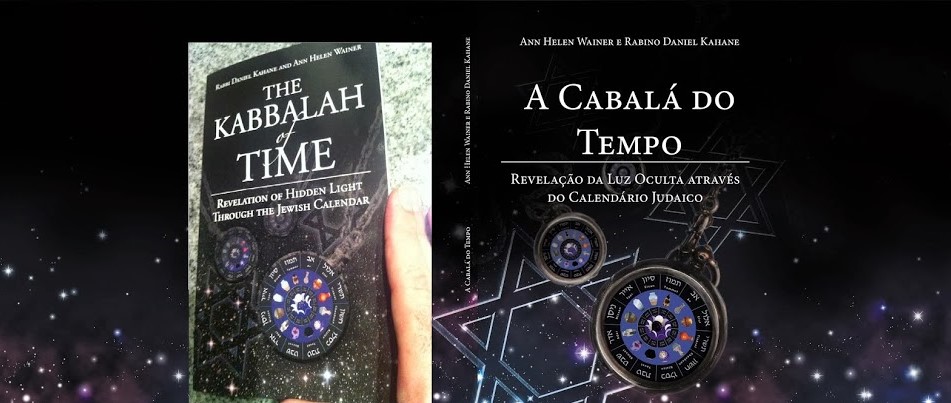SONG OF SONGS:
10. Your cheeks are comely with rows,
your neck with necklaces.
11. We will make you rows of gold
with studs of silver."
12. "While the king was still at
his table, my spikenard gave forth its fragrance.
70 SOULS THAT DESCENDED TO EGYPT: Hezron
TALMUD SHEVUOTH: Daf 4
BOOK OF JEREMIAH: Chapter 4
Week 4 in the Jewish calendar is the
week of the final days of Sukkot, Hoshanah Rabbah, Shmini
Atzeret, and Simchat Torah. The verses for this week from the Song of
Songs speaks of a tremendous closeness to Hashem.
The first two verses are said by
Hashem to us. The plain meaning of the words reflect the elevation of the
material. Rashi explains them as a reference to the spoils from the
Song of the Sea, when Israel “emptied out Egypt” physically and spiritually,
elevating its sparks. Regarding Simchas Torah, The Ba’al Shem Tov teaches,
"The archangel Metat," boasted Michoel, referring to the most
prestigious angel in the heavenly court, "ties crowns for G-d out of
Israel's prayers. Today, I shall fashion an even more glorious crown for the
Almighty out of these torn shoes."
Rashi explains that the rows
also include a forehead plate. Hashem adorns us and we adorn Him on this day.
The words of these first verses for the week also seem to allude to singing and
dancing. Torim means rows, lines, and may be a reference to lines of
people dancing, or lines from a song. Charuzim are beads, studs, but
also rhymes, like the piyyutim such as those in the Hakkafot, Tefilat
Geshem, and Mi Piel. Silver, as Chassidus explains, comes from Kissufim,
desire, the desire to cling to G-d during these days.
Yet, perhaps the greatest of all
indication of the meaning behind this verse, is the first one: Lehi,
usually translated as cheek, but which also means jawbone, the crucial element
one of the Tanach’s recorded stories of Samson defeating the Philistines. It was
with a jawbone of a donkey (Chamor, material, a word repeated so many times in
the story) that Shimshon struck a thousand Philistines, and from that bone
water issued forth. One of the main dancing during Sukkot is with water, from
which there would come Ruach HaKodesh, just like Hashem rested on Samson
himself during that fight.
The third verse is also deeply
related to this week, as it is well known that Sukkot is considered a
festivitiy for all nations, but then, on the last day, Hashem has a private
audience for the Jewish People alone. This is the idea of being at Hashem’s
table just ourselves. There is some disagreement in the commentators over
whether the spikenard fragrance is a good smell or otherwise. Either way,
it represents our closeness to G-d, and even a certain sense of inadequacy, as
we begin again the cycle of reading the Torah.
Of the seventy souls of the Jewish
people that descended to Egypt, the fourth mentioned is Hezron. Hezron is also
one of the descendants of Judah, the father of Caleb. As explained in Book 3, chatzer means
courtyard, or enclosure. Here is seems to be a reference to the courtyard of
the Temple (in which the dancing would take place). About the festivities of
the day it is said that, “So abundant was the light that there was no courtyard
in Jerusalem that was not illumined by the light coming from the place of the
water-drawing.” (Mishnah, Sukkah 5:2)
Daf dalet (Folio 4) of Shevuoth discusses
primarily punishments for inaction. In these days of Sukkot, Shmini
Atzeret and Simchat Torah, actual deeds are required to perform the mitzvoth of
the day.
The beginning of Chapter 4 of the
Book of Jeremiah contains a similar theme to that of the above ones in Shir
HaShirim:
1. If you return, O Israel, says the
Lord, to Me, you shall return, and if you remove your detestable things from My
Presence, you shall not wander.
2. And you will swear, "As the
Lord lives," in truth and in justice and in righteousness, nations will
bless themselves with him and boast about him.
The verses speak of being in G-d’s
presence, but having detestable things that need removing. They also speak of
how the nations will see the special quality of the Jewish people. The verses
speak of justice and righteousness, while the rest of the chapter mentions
quite a few times about the need to heed the voice of the shofar, a
reference to the period of judgment of Rosh Hashanah coming to a
close.

